Host Landry Signé and Drs. Oscar Otele and Danielle Resnick examine the nuances of the state of democracy across Africa, providing insights into strategies for democratic resiliency moving forward.
- Subscribe to Foresight Africa on Apple, Spotify, Afripods, or wherever you listen to podcasts.
- Listen to previous episodes.
- Watch episodes on YouTube.
- Learn about other Brookings podcasts from the Brookings Podcast Network.
- Sign up for the podcasts newsletter for occasional updates on featured episodes and new shows.
- Send feedback to [email protected].
Transcript
[music]
SIGNÉ: Hello, I am Landry Signé, senior fellow in the Global Economy and Development Program and the Africa Growth Initiative at the Brookings Institution. Welcome to the Foresight Africa podcast where I engage with distinguished leaders in policy, business, academia, and civil society to share their unique insights and innovative solutions to Africa’s challenges while highlighting opportunities to advance engagement between Africa, the U.S., and the global community. You can learn more about this show and our work at Brookings dot edu slash Foresight Africa podcast.
My guests today are Dr. Oscar Otele and Dr. Danielle Resnick. Dr. Otele is a faculty member at the Department of Political Science and Public Administration at the University of Nairobi. Dr. Resnick is a senior research fellow in the Markets, Trades, and Institutions Unit at the International Food Policy Research Institute, and a nonresident fellow at the Brookings Institution in the Global Economy and Development Program.
Both guests are currently engaged in a research project through the Africa Growth Initiative at Brookings titled “Strengthening Democracy in Africa: Pathways toward Inclusion, Participation, and Transformation,” which I am co-leading with Danielle.
The Strengthening Democracy in Africa project is supported by a grant from the Open Society Foundation. The conclusions and recommendations of any Brookings publication or podcast are solely those of its authors and speakers and do not reflect the views or policies of the Institution, its management, its other scholars, or its funders. Brookings recognizes that the value it provides is in its absolute commitment to quality, independence, and impact. Activities supported by its donors reflect this commitment.
Thank you so much for being here with us today, Dr. Otele.
OTELE: Thank you so much for this opportunity, Landry.
SIGNÉ: We are excited to have you, Dr. Resnick.
RESNICK: Thanks a lot, Landry. It’s great to be with you today.
SIGNÉ: Danielle, I am truly excited to be co-leading the Strengthening Democracy in Africa project with you. Since I am hosting the Foresight Africa podcast, you will be representing both of us during the conversation about the project. To kick things off, could you share where the idea for this project originated and how it has evolved since the research began?
[3:49]
RESNICK: Yes, absolutely. And it’s certainly a pleasure to be co-leading this project with you, Landry. So the idea for this project really came about back in 2022. It was originally motivated by the broader set of democratic backsliding that we had witnessed around the world, including in the United States. And Africa, too, at that time was just beginning to experience the wave of military coups that have since spread to several other countries in the region. And in the wake of those coups, more and more studies were pointing to how African citizens were increasingly dissatisfied with their democracies. And at the same time, though, we were seeing other cases like Zambia where the President Hichilema defeated the ruling party in 2021 against some very difficult circumstances and against entrenched incumbent advantage.
So looking at these different patterns, a real democratic success story in some places, military coups in others, we really started wondering what really causes some countries to experience democratic resilience and others to experience democratic backsliding.
Since the project began, I think we have felt a renewed urgency that this is a really critical topic, especially in light of the massive cuts to democracy and governance assistance, a majority of which went to Africa that have occurred in light of the elimination of USAID.
So one of our goals is really to press much harder, I think, on the policy options to promote democratic resilience and prevent backsliding. And this is increasingly becoming a major focus of the project as we continue in our second year of this project.
SIGNÉ: Amazing, Danielle! Oscar, you are one of the authors on the Kenya case study for this project. Kenya is often considered a beacon of democratic stability, and in fact, your paper is titled “Kenya’s Resilient Democracy.” What cultural factors and institutional mechanisms have created this reality?
[6:03]
OTELE: So once again, Landry, thanks for the opportunity and it’s a pleasure sharing this panel with Danielle. Straight to the question regarding cultural and institutional factors, and before even I get to that, my concern would be why you narrowed down on the two variables. Of course, there are a number of variables here. But suffice to get straight to the cultural and institutional factors, which, as we have already acknowledged in our paper, are some of the factors that underpin democratic resilience. How?
Now, we begin with the cultural factors. Now, go back to the pre-colonial Kenya, communities around here have actually been democratic, so to speak, in the communal way of engaging, consensus building, and that culture has been nurtured over the time. Long ago we had a council of elders where issues were deliberated in a more open and transparent manner. So that culture was actually taken forward to post-independence era. And over the year since independence, Kenya has actually embraced a democratic culture of openness and conducting its processes in an open and free manner.
The other cultural factor is to look at the Kenyan societal composition. Forty-two, or about, ethnic groups, so is our diversity. We celebrate that diversity. And the question of inclusion, who gets to be involved in democratic process, is something that now our constitutional architecture has really embraced in the sense that we have to ensure that everybody is brought on board. The 42 ethnic groups, including other entities, marginalized group, women. And so that culture of inclusivity has also been nurtured and promoted in recent time.
The other thing that I also need to point out as far as the cultural aspect, of course, our vibrant civil society groups. And this is rooted from the way, you know, we have communally organized ourselves, the elders to guide our engagement, their movement, societal movement to guide our way of doing things. So at every point in time there is always an oversight, a body or entity, looking into how governance processes are conducted.
Now, straight to the institutional factors, suffice to begin my presentation on 2010 constitution, where now we have very vibrant constitutional architecture in this country. And that has actually promoted horizontal accountability. We have a very strong judicial institution. We saw what happened in post-election scenario. The Supreme Court came out strongly to nullify a presidential election. In addition, civil society organization have also carried out diagonal accountability. And therefore, civil society actors have been very vocal in terms of oversighting state institution. And therefore, the cultural and institutional factors have actually underpinned Kenya’s democratic resilience.
SIGNÉ: Amazing Oscar! And you mentioned that you wanted to elaborate on some other variables so feel free to share a little bit more succinctly.
[10:03]
OTELE: Of course, as I said, these factors are related. So when you’re talking about cultural, institutional, there are other related factors, political factors, economic factors. If you look at Kenya’s economic growth, the country has in recent time put in place structures to promote macroeconomic growth, and therefore, it is expected that in the long run, Kenya’s economic growth is likely to move to the next level.
Ultimately, when you look at where we have come from as a country, there is a positive economic growth and therefore we expect our democratic processes also to survive in that circumstances. And of course, the politics around economic growth will also ensure that related activities move up in terms of ensuring that everybody is brought on board.
So in short, these factors are interrelated. We can talk about institutional factors, and of course institutional factors, as I have earlier mentioned may broadly cut across economic and political environments.
SIGNÉ: Fabulous! Oscar, at the moment, Kenyan President Ruto has been experiencing growing challenges from his constituency and has been on somewhat of an apology tour recently for various policy decisions. Some see this as a sign of a weakening democracy, while the other view the protest and Ruto’s willingness to change course as signs of strong democratic institutions and civil society. How does Kenya leverage this discontent to strengthen its democracy instead of allowing it to weaken?
[12:13]
OTELE: Obviously, as you have rightly mentioned, the Kenyan protests have actually dominated the international headline. And the events have been interpreted differently. Now, from where I sit, you can look at that in two ways. Of course, the very fact that citizens can wake up and go to the street, protest against initiatives they feel that are not working in their favor, that in itself is actually an essence of openness and you can see a thriving democracy. But others have also interpreted that differently seeing as an erosion of democracy, as a backsliding of democracy. So either way, how do we weave these two scenarios?
From where I sit, actually, how the leadership responds to the protest is actually what matters. I actually see a window of opportunity for government to respond to its citizens. The question of accountability, whether in streets or on social media. Actually, accountability and transparency, as you can read in my paper, is the lifeblood of democratic resilience. There’s a political connotation where some have argued that by President Ruto apologizing publicly is a weakness. Far from that! His public apologies actually reflect a government that recognizes it must listen to its citizens and be able to negotiate, when necessary, when called upon, and not to dictate as it is in other contexts.
So, to take advantage of this window of opportunity, we must actually deepen our civic education and make it a practice to institutionalize dialogue where citizens can engage in budget-making processes, for example, right from national level to low level. If we institutionalize this dialogue, we are able to get answers in good time and therefore able to manage potential pushback from below.
SIGNÉ: Amazing Oscar! Let’s now turn to Danielle. There are five country cases in these studies that cover five very different democratic realities. Our synthesis paper discusses trends of resiliency and as well as trends of backsliding. What do these trends look like and what are these cases showing that the perception data from places like Afrobarometer or Varieties of Democracy doesn’t?
[15:27]
RESNICK: Okay, well, thanks, Landry. And perhaps it’s useful for us to say what our five countries are for listeners. We selected countries that are experiencing quite different democratic trajectories. So we included two countries that are almost polar opposite extremes in terms of their regime types. We have Ghana, which has been a pretty robust democracy since its transition in 1992. And we have Zimbabwe, which has been an autocracy for most of its post-independence history.
And then we have two countries that have progressed, albeit from quite different starting points. So we have Kenya, as you’ve been hearing from Oscar. It’s been quite a robust democracy, despite some setbacks. And then, we also have the Democratic Republic of Congo.
And finally, we have a country that has really experienced a pivotal breakdown of its democracy, and for this we included Mali, which unlike some other countries with junta regimes like Niger or Guinea or Burkina Faso, Mali really had almost 20 years of multi-party democracy before its breakdown. So we think it’s a really interesting case to look at.
Now there’s been a really vast literature in recent years on both democratic and autocratic resilience. Typically, democratic resilience is thought of as the ability of a political regime to prevent or react to challenges without losing its democratic character. So really, in that definition, there’s something about being tested, experiencing some type of internal or external stressors that help you test the resilience.
[17:00]
And then there’s different disaggregations. You can look at onset resilience, breakdown resilience, and bounce-back resilience. These are not our concepts, as you know, Landry. But I think we’re the first ones to systematically apply them to the African context. So just for listeners, it may be helpful to explain that onset resilience occurs when a democracy is able to withstand episodes of autocratization. So perhaps attempts to manipulate an election or an executive who tries to change term limits.
Breakdown resilience occurs when a democracy that’s already backsliding is able to resist further regime breakdown. Think about a country that’s maybe had an unlevel playing field for the opposition, so it’s backsliding, but political parties are still allowed to participate, so they’re not outlawed.
And then bounce-back resilience is when a country that’s been impacted by a shock, but then it’s able to turn around quickly to reestablish its previous level of democracy. Senegal last year is a good example of this. After years of lawfare tactics to outlaw different opposition candidates that spurred massive protest across the country, the former president, Macky Sall, finally allowed a pretty competitive electoral process in 2024 and stepped down. So that’s an example of bounce-back resilience.
[18:16]
Just to touch briefly on the second part of your question related to data from Afrobarometer or Varieties of Democracy, both of those data sets are extremely important for providing comparative and temporal perspectives. But I think these data sets cannot offer the nuance that really comes from detailed process tracing via in-depth case study analysis to show what happens to a regime, to a democracy, in the face of an internal or external stressor. And as I said earlier, that’s really how you test resilience.
So from our cases, we learn about how a massacre in 2012 in Mali became a really important test of Mali’s democratic resilience, showing the failures of its breakdown resilience. It wasn’t able to resist backsliding to a junta government in the wake of that major security threat. Or we also learn about the contested and fraught decisions of the international diplomatic community in Zimbabwe in the wake of the ouster of Robert Mugabe in 2018 and the ramifications of the international community’s decision not to call that ouster a coup.
So in many of the country cases, we learn about the many times that institutions such as electoral commissions, audit committees, judiciaries were tested, and when and why they proved strong enough to counter anti-democratic forces. So while Afrobarometer and Varieties of Democracy really capture a country at one point in time, the case studies provide a much more dynamic and interactive perspective on how democratic processes are reinforced or eroded.
SIGNÉ: Thank you, so much Danielle. What key lessons can be learned from case studies?
[20:00]
RESNICK: Yeah, so I think there’s probably at least four lessons that are appearing from our collective case studies. I think first and foremost, and this is really key to some of our countries like Mali, like Zimbabwe, like Democratic Republic of Congo, and that’s really the need for professional military-civilian relations. You really need civilian oversight of the military, continuous training about the norms of appropriate military behaviors, and also ensuring that military recruitment is not biased towards particular regions, ethnic, or political groups.
I think second and relatedly, and this really goes to Oscar’s point about inclusivity, and so it’s really important that elite coalitions or what we sometimes call the political settlement is relatively broad and inclusive and doesn’t allow certain constituencies to feel disproportionately excluded. So, for example, right now, there’s a lot of discussion in both Nigeria and Ethiopia about whether the political settlement is too narrow in terms of groups that are in cabinet or in a ruling party coalition. And when groups perceive that they’re being disproportionately and intentionally excluded from power structures, that can be a real powder keg for a future conflict.
Third, parties are the heart of democracy, and therefore, there needs to be continuous investment in making parties stronger. This includes investing in internal democracy processes so that promising candidates feel that they have a chance in leadership positions and campaign finance reforms that create a level playing field. From work in Africa and elsewhere, there’s really an advantage to fostering institutionalized parties with strong constituency linkages rather than promoting personalistic parties distinguished only by their leader and which often lead to a lot more electoral volatility.
And then, finally, I would say it’s really important to tackle economic inequality, vast economic disparities, breed distrust, and increase public perceptions that leaders are detached from the real concerns of everyday people, therefore eroding democratic resilience and public trust in the regime over time.
SIGNÉ: Fabulous, Danielle! I always like to end each interview by asking the guests two questions. First, building on your work and experience, what is one piece of advice you will give to African or global policymaker to ensure the best outcomes on the continent, Oscar?
[22:35]
OTELE: There are a number of lessons to proffer to policymakers on the continent or on the global stage. I’ll zero down to two. And one lesson to draw policymakers into reflecting this way. What happens during turbulent times, or what do we need during turbulent times? These are times of uncertainties. These are times of high threats and risks. So what we need is actually to invest in strong institutions that will last.
There is a tendency in Africa, for example, to fetish leaders. But far from that, we need to put in place institutions that will actually survive, because institutions actually anchor democracy in turbulence times. And this literature is around us. When we have institutions, as I said at the beginning, we are likely to have predictable rules. We are likely to have a transparent governance, and last but not least, empowered citizens. And how are these citizens empowered?
Another lesson number two. African institutions like African Union need to come up with the academies, for example, to now start training young emerging leaders on the ethics and governance lessons, how these young people grow up knowing values of accountabilities and principles of democratic accountability so that they are nurtured into that way of life. And I strongly believe if we are able to put up these kinds of academy, then we will grow a well-informed citizenry that will push forward democratic governance.
SIGNÉ: Fantastic, Oscar! Danielle, given your successful career and impact, what advice would you give to youth and girls hoping to follow in your footsteps?
[25:15]
RESNICK: Well, that’s a really important question. I guess I would think of three main principles. First, be curious and engaged about how the world works. I think my own interest in international politics and policy were really spurred by making comparisons across countries, across regions, across cities.
Secondly, read widely, as wide as you can. And if possible, travel widely, because the policies or issues that interest you may be equally important in very different places. And becoming familiar with other regions of the world can help you gain unique insights on the underlying drivers and possible solutions for that policy issue.
And then I think thirdly, don’t become fixated that there’s one main pathway to a career in research or public policy. There are many routes to influence from advocacy in public arenas, engagement with your local community, or through academia and think tanks. And I think it’s important for young people not to feel compelled to follow a script designed by someone else, but to really be genuine about what they care about and what their end goal is.
So those are just some brief principles that I would try to provide other youth who are interested in international politics and policy careers.
[music]
SIGNÉ: Amazing, Danielle! Thank you so much for joining me today, Danielle, Oscar.
I am Landry Signé, and this has been Foresight Africa. Thank you, listeners, for joining me today.
The Foresight Africa podcast is brought to you by the Brookings Podcast Network. Send your feedback and questions to podcasts at Brookings dot edu. My special thanks to the production team including Fred Dews, producer; Nichole Grossman, Dafe Oputu, and Nicole Ntungire, associate producers; Gastón Reboredo, audio engineer; and Izzy Taylor, senior communications coordinator in Brookings Global.
The show’s art was designed by Shavanthi Mendis. Additional promotional support for this podcast comes from my colleagues in Brookings Global and the Office of Communications at Brookings.
The Brookings Institution is committed to quality, independence, and impact.
We are supported by a diverse array of funders. In line with our values and policies, each Brookings publication represents the sole views of its author(s).


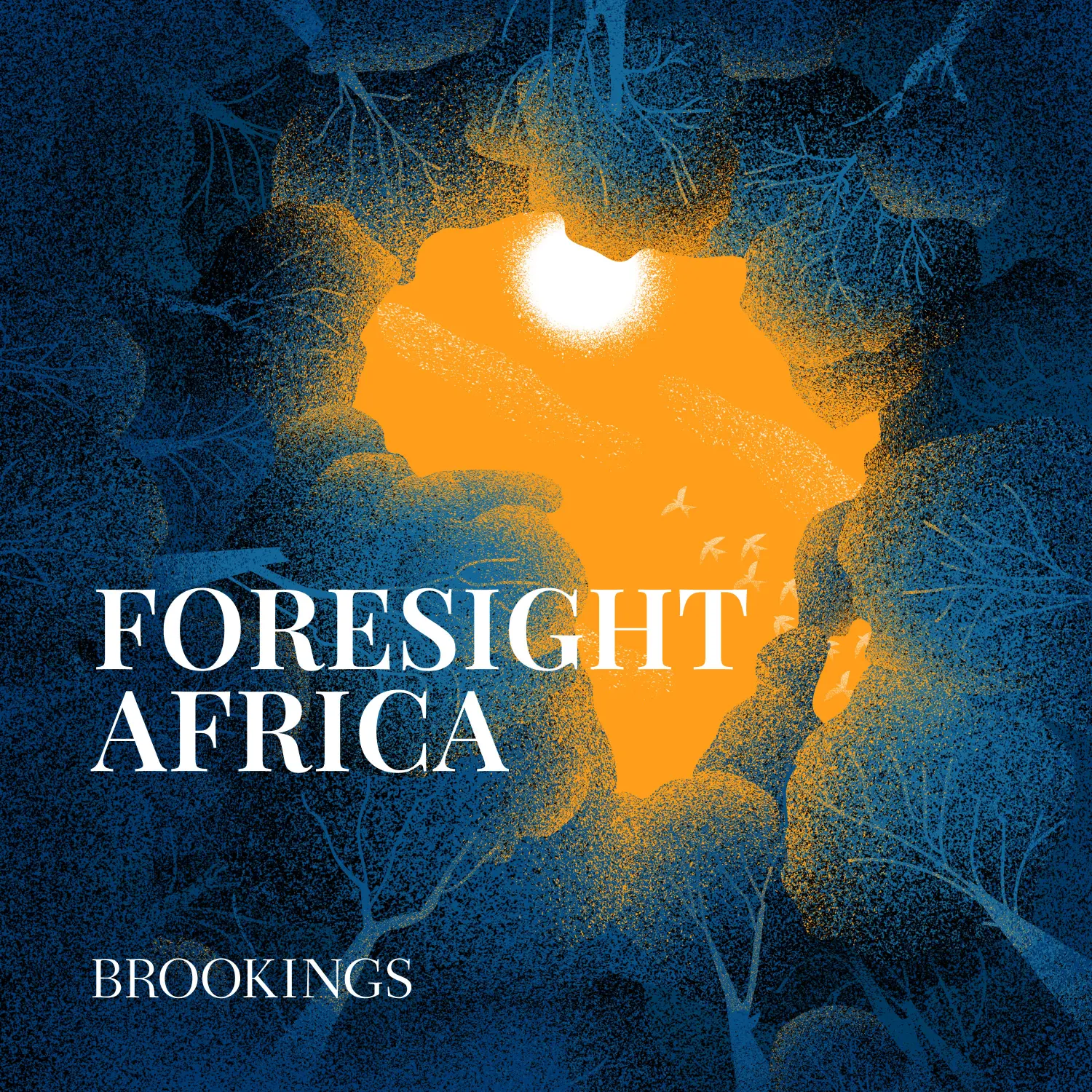
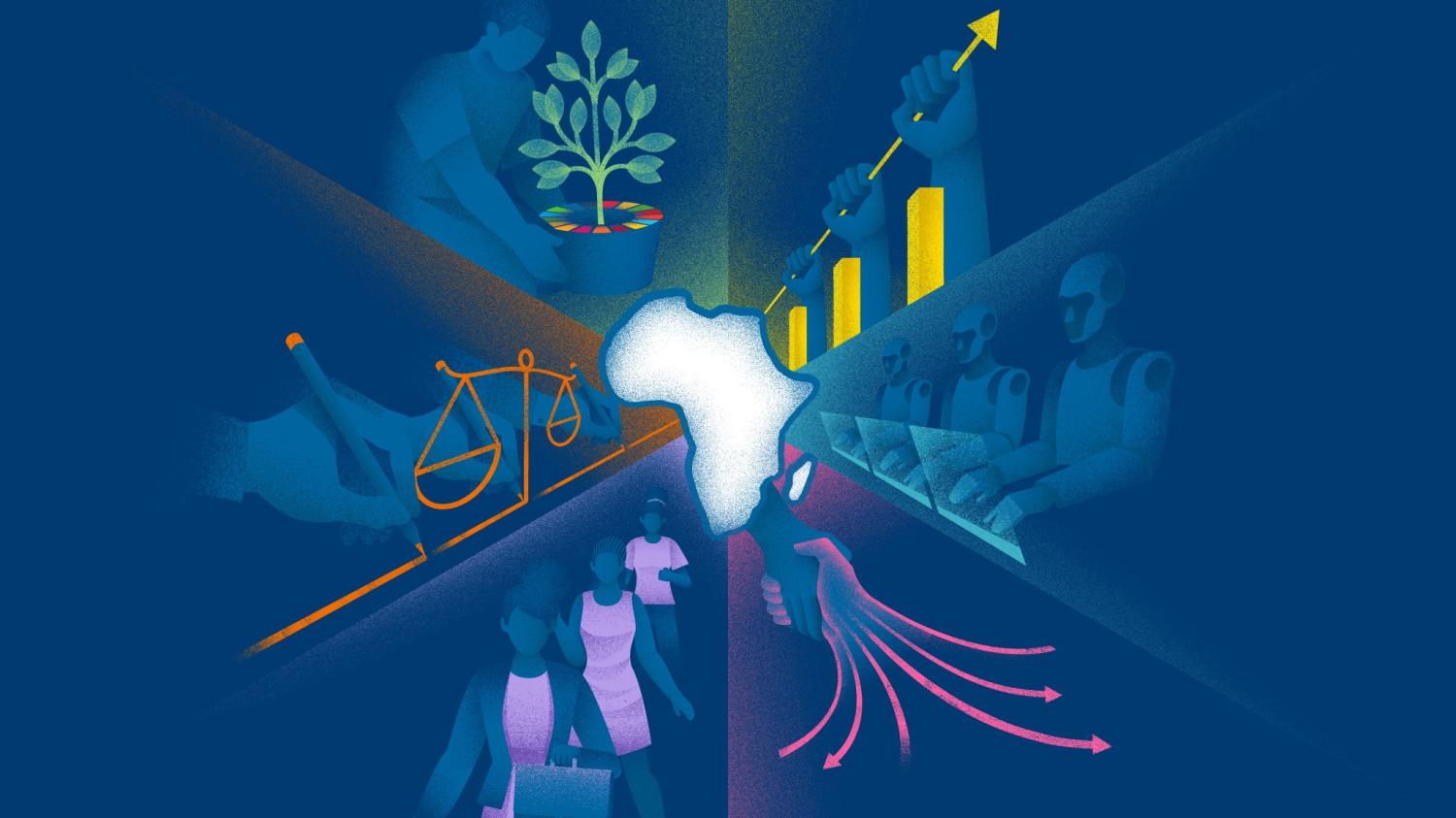
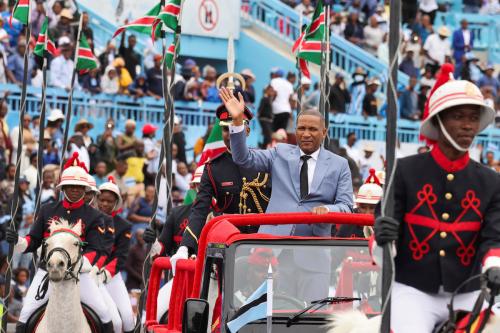
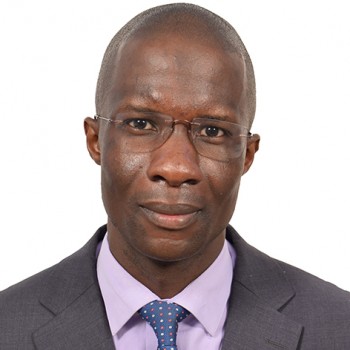
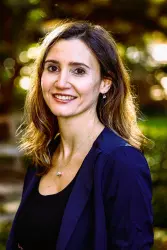

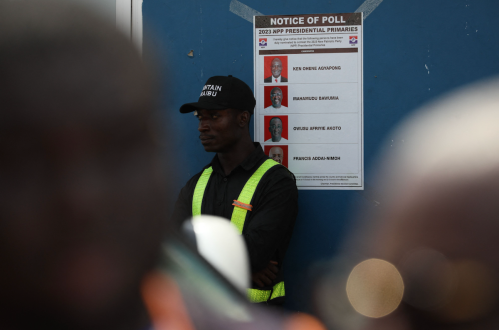


Commentary
PodcastDemocratic resilience in Africa (and Kenya) takes many forms
Listen on
Foresight Africa Podcast
June 25, 2025